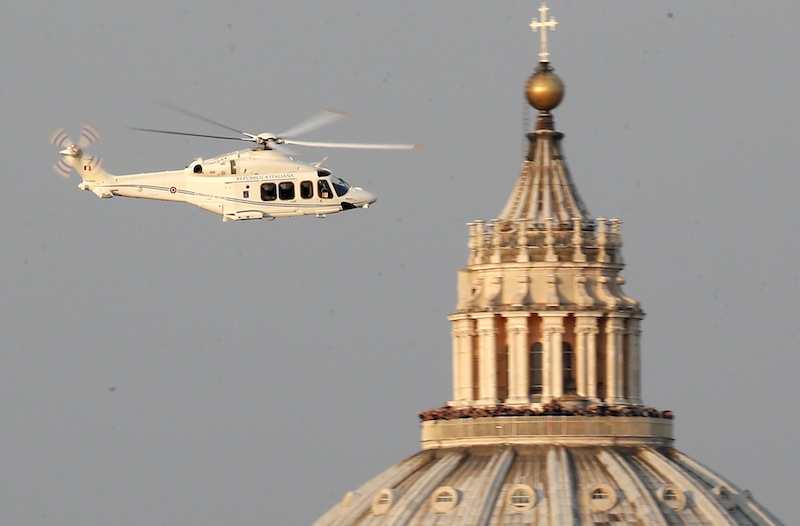VATICAN CITY (AP) — The Vatican has told Polish prosecutors that its former ambassador to the Dominican Republic, under investigation for alleged sex abuse, is covered by diplomatic immunity and that the Vatican doesn’t extradite its citizens, Polish officials said in the latest development in an embarrassing case for the Holy See.
Polish Archbishop Josef Wesolowski is the highest-ranking Vatican official to be investigated for alleged sex abuse, and his case has raised questions about whether the Vatican, by removing him from Dominican jurisdiction, was protecting him and placing its own investigations ahead of that of authorities in the Caribbean nation.
The Holy See recalled Wesolowski on Aug. 21 and relieved him of his job after the archbishop of Santo Domingo, Cardinal Nicolas de Jesus Lopez, told Pope Francis in July about rumors that Wesolowski had sexually abused teenage boys in the Dominican Republic. Dominican authorities subsequently opened an investigation, but haven’t charged him.
Poland, too, has opened an investigation into Wesolowski and a friend and fellow Polish priest.
Vatican spokesman the Rev. Federico Lombardi has denied Rome was shielding Wesolowski and that the Vatican was cooperating with the investigations while conducting its own probes.
The spokesman for Warsaw’s provincial prosecutor’s office, Przemyslaw Nowak, told The Associated Press that Polish prosecutors had recently asked the Vatican for information about Wesolowski’s legal status as part of its own investigation. He said the Vatican had confirmed that Wesolowski is a citizen of the Vatican city state, that the Vatican doesn’t extradite its citizens and that as a nuncio, or Holy See ambassador, Wesolowski enjoys full diplomatic immunity.
Lombardi confirmed Saturday that the Vatican’s embassy in Warsaw had responded to the request, though he declined to confirm the legal principles Nowak said were outlined in the letter. Lombardi as well as Nowak stressed that the Polish were not seeking Wesolowski’s extradition but merely information about his legal status.
Lombardi did confirm that Wesolowski was being investigated by two separate Vatican tribunals for alleged canonical crimes and violations of the Vatican city state’s criminal code. Canon law convictions can result in being defrocked; convictions in the Vatican’s civil tribunals can carry jail terms.
The criminal code was updated last summer to criminalize sexual violence against children. Lombardi said it would be up to legal experts to determine if the new law can be applied retroactively, or if the Vatican’s previous laws would cover Wesolowski’s case. Sexual crimes did exist in the previous law, but in a general form in the archaic code as a crime against “good customs.”
That two Vatican entities are investigating Wesolowski suggests that he has remained inside the Vatican ever since his recall. The Vatican has refused to say where he is, provide information about whether he has a lawyer or how he has responded to the accusations.
The case is particularly problematic for the Vatican since Wesolowski was a representative of thepope, accused of grave crimes that the Holy See has previously sought to distance itself from by blaming the worldwide sex abuse scandal on wayward priests and their bishops who failed to discipline them. The Wesolowski case is also delicate because he was both ordained a priest and bishop by his Polish countryman, Pope John Paul II, who will be made a saint in April.






